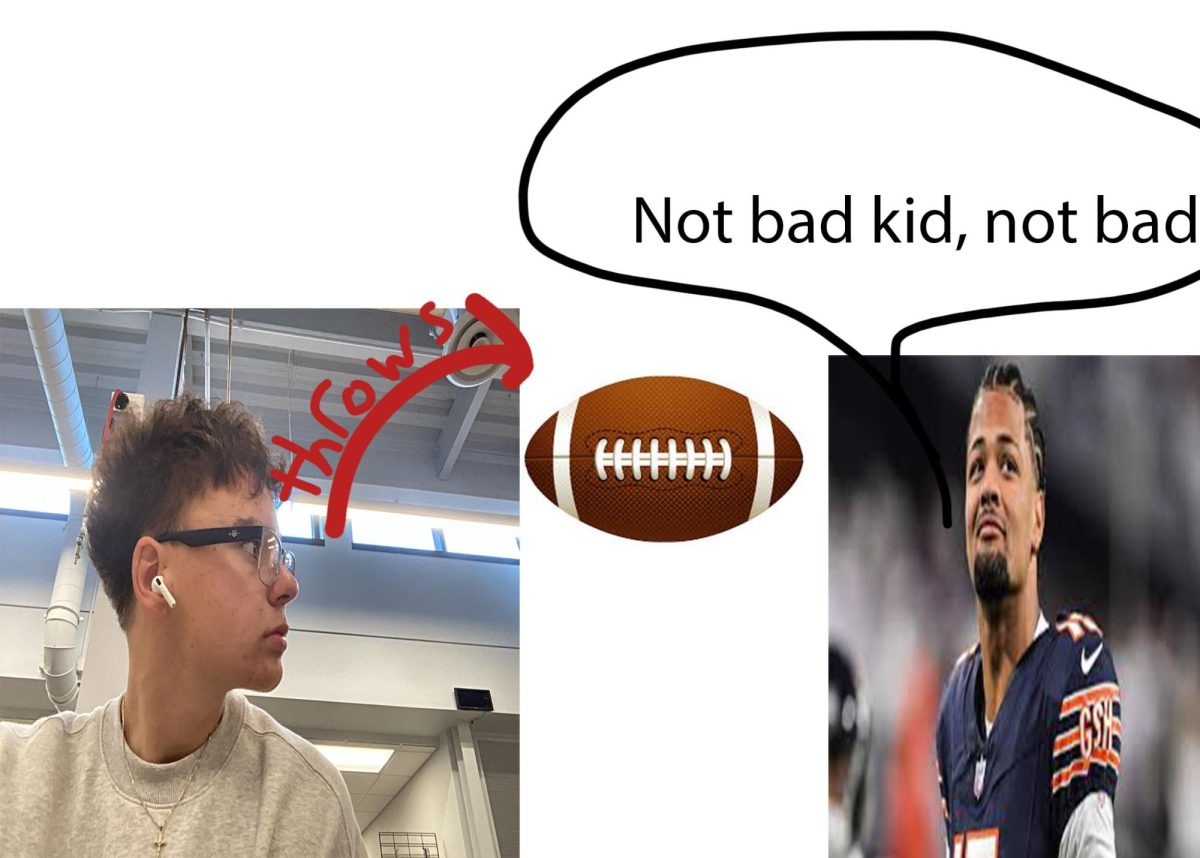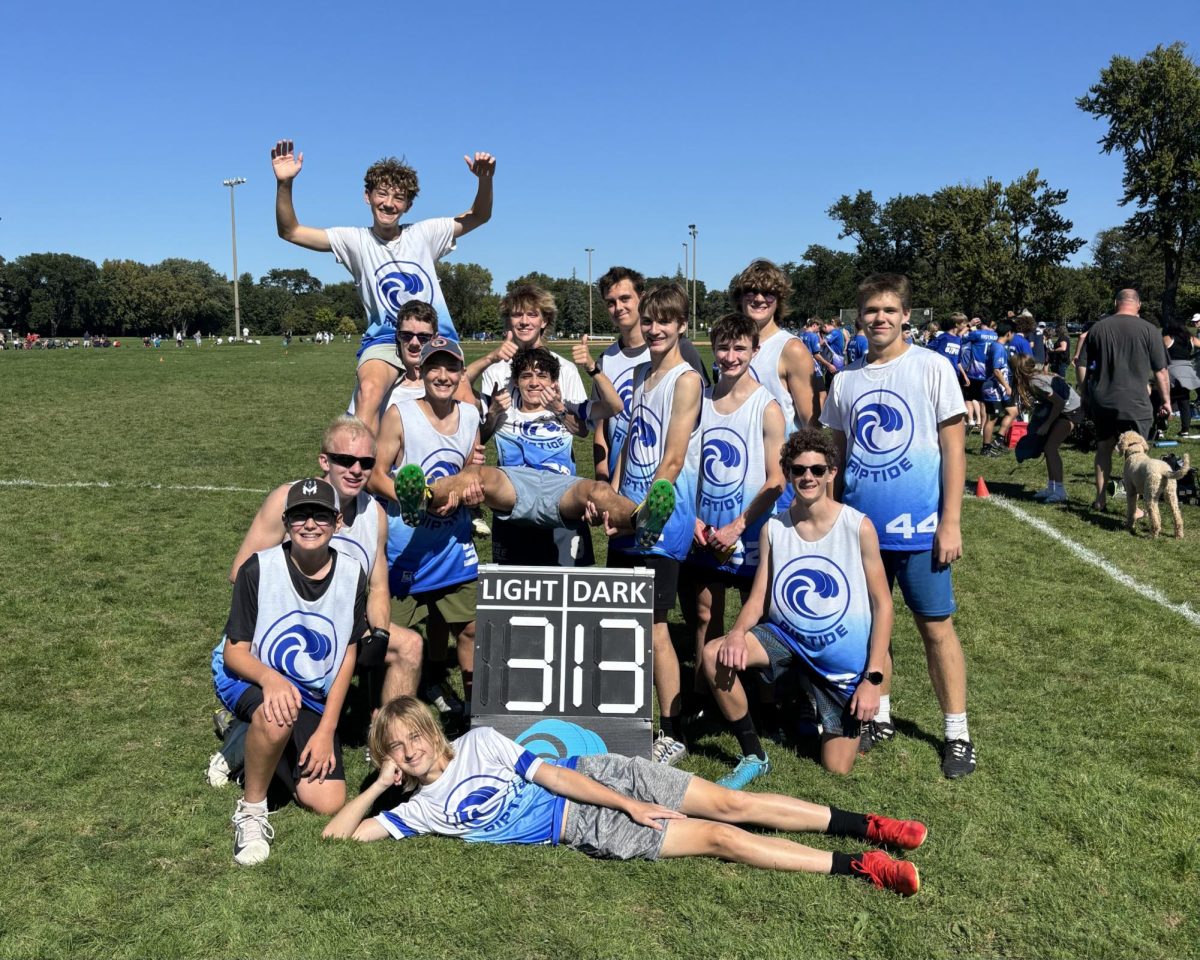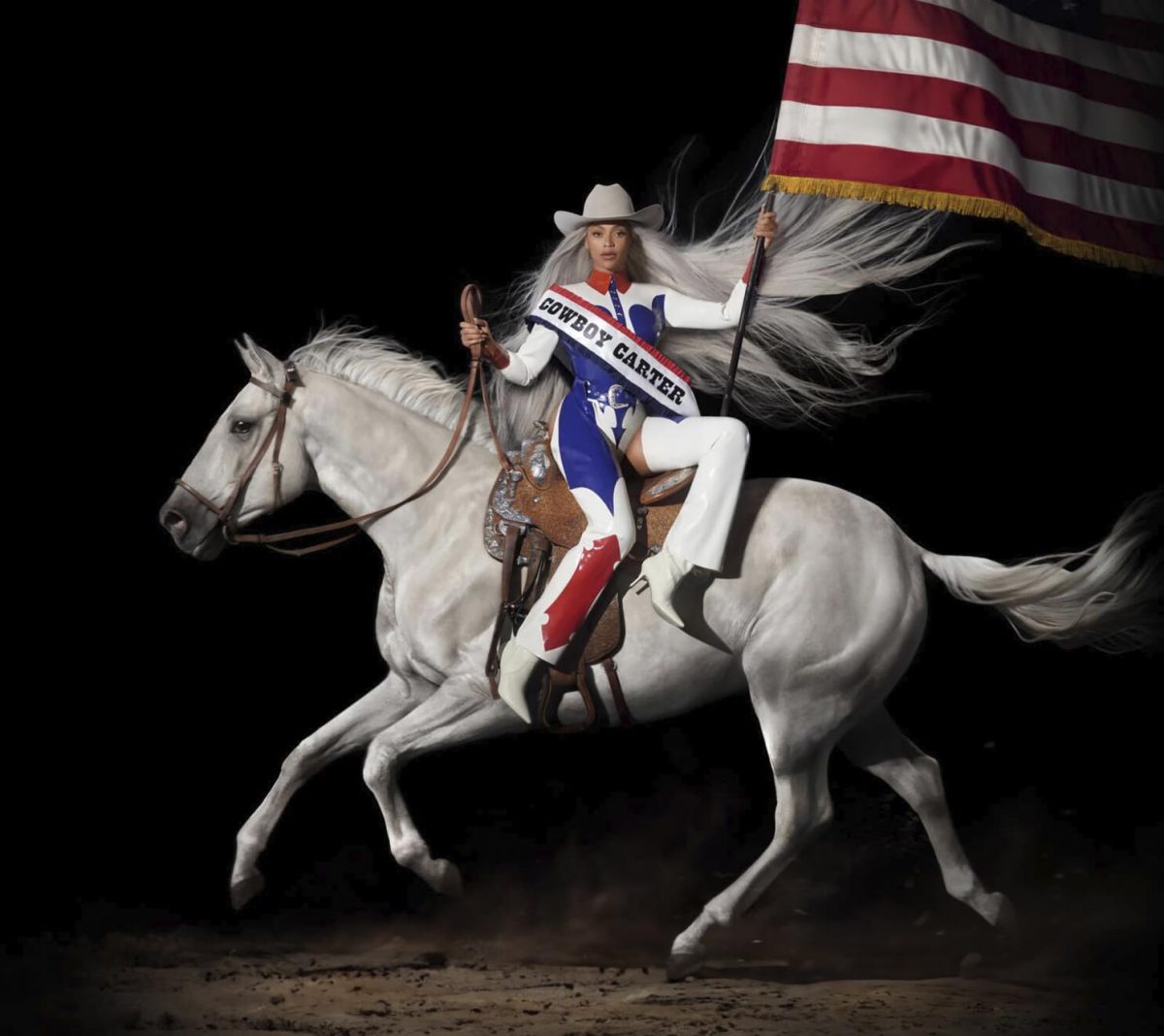On March 29th, 2024 Houston-born singer, songwriter, and pop icon Beyoncé released her eighth studio album titled Cowboy Carter (act ii). Set as the second installment of a planned trilogy of albums, it covers a multitude of genres including Country, Soul, Rock, HipHop, Pop, and Americana. Scattered throughout the album are songs featuring independent Black country artists Tanner Adell, Brittney Spencer, Tiera Kennedy, Reyna Roberts, Shaboozey, and Willie Jones. Being Beyoncé, her features also include contributions from country icons Dolly Parton and Willie Nelson.
As we all know, Beyoncé’s presence in music and pop-culture as a whole has been anything but small. First debuting in the 2000s R&B girl-group Destiny’s Child, Beyoncé established herself as a talented vocalist and songwriter. Since branching off into an extremely successful solo career, she has accumulated much support and critical acclaim. From her debut album Dangerously in Love in 2003 to Cowboy Carter in 2024, Beyoncé has released a total of eight studio albums as a solo artist. Her music has primarily been categorized in the R&B, Pop, and Soul genres, making the release of Cowboy Carter stand out amongst her previous works.
In late February of this year, Beyoncé’s single ‘Texas Hold Em’ reached No. 1 on Billboard’s Hot Country Songs chart, making her the first female Black artist to hold this title. Country music has long been dominated by white musicians, white male musicians to be more specific. When many of us think of Country as a genre we picture cowboy hats, pickup trucks, and a whole lot of beer. While much of modern Country has evolved to fit such stereotypes, the origins of the genre have deep roots in the Black community. The forced immigration of African individuals to the Southern United States brought new folk songs and instruments, one example being the Banjo, that when seen by white audiences were taken and twisted into the Country music that we know today (The Harvard Crimson). Since then, there has been a significant lack of diversity in the Country music scene as a whole, and many white listeners have expressed their outrage at Beyoncé’s success there as a Black woman.
One can and should interpret Beyoncé’s anticipated album trilogy as a call to focus on and give credit to the Black community in American music. Cowboy Carter’s predecessor Renaissance (act i) released in 2022 pays homage to Black and queer Black artists, specifically in the house and disco genres. Cowboy Carter seeks to send out a similar message, one that calls attention to the Black roots of country music.
As with all of her work, Beyoncé has yet again put immense thought and effort into the making of Cowboy Carter. Conceptually, the album is presented as the fictional radio station “KNTRY Radio Texas” where Dolly Parton, Willie Nelson, and Linda Martell speak as hosts between songs. As previously mentioned, Beyoncé chose to feature an array of rising Black Country artists on the album in addition to popular singers Miley Cyrus and Post Malone, each bringing their own stylistic and vocal influences to the album. From its first track ‘AMERIICAN REQUIEM’ to the final ‘AMEN,’ Cowboy Carter takes listeners on a boot-tapping, immersive, and emotional experience, one that demands to be heard.
In her own words, “This ain’t a Country album. This is a ‘Beyoncé’ album.”




























